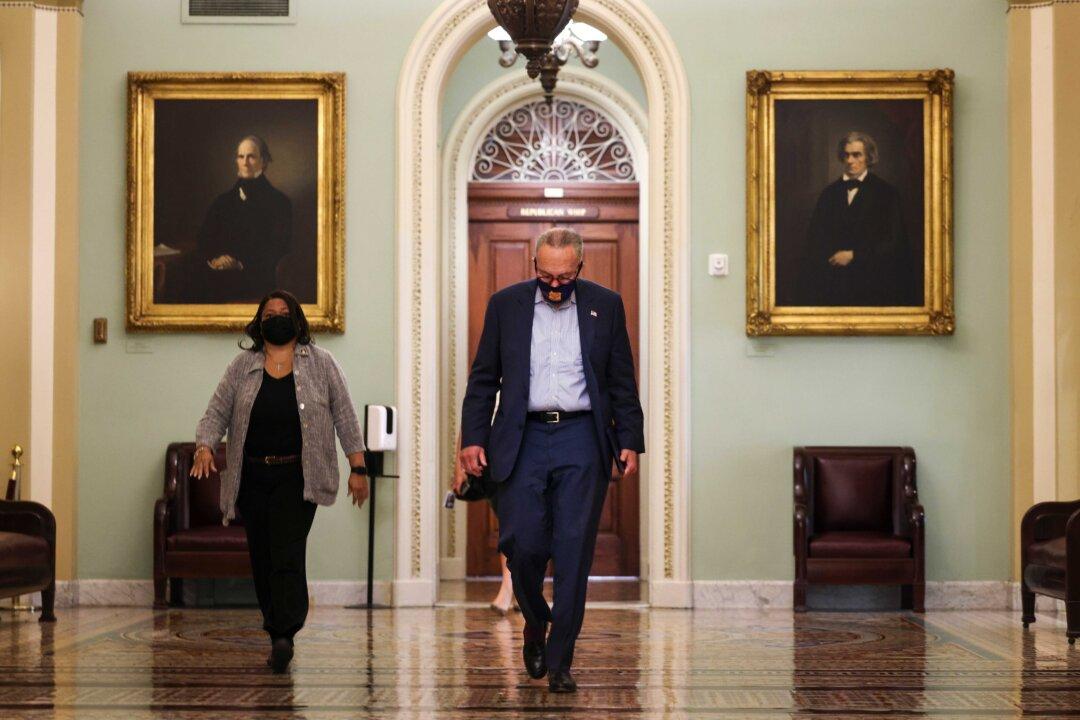On the Senate floor Wednesday morning, Majority Leader Chuck Schumer (D-N.Y.) announced that Democrats are crafting a stopgap bill to fund the government through December to avert a shutdown on Friday.
Schumer said that the bill will extend government funding to Dec. 3, and will provide “long-sought” emergency relief to areas affected by Hurricane Ida as well as emergency funding for the ongoing Afghan special immigrant crisis. On Monday, Senate Republicans successfully filibustered a bill with the same measures by blocking debate on the continuing resolution.





